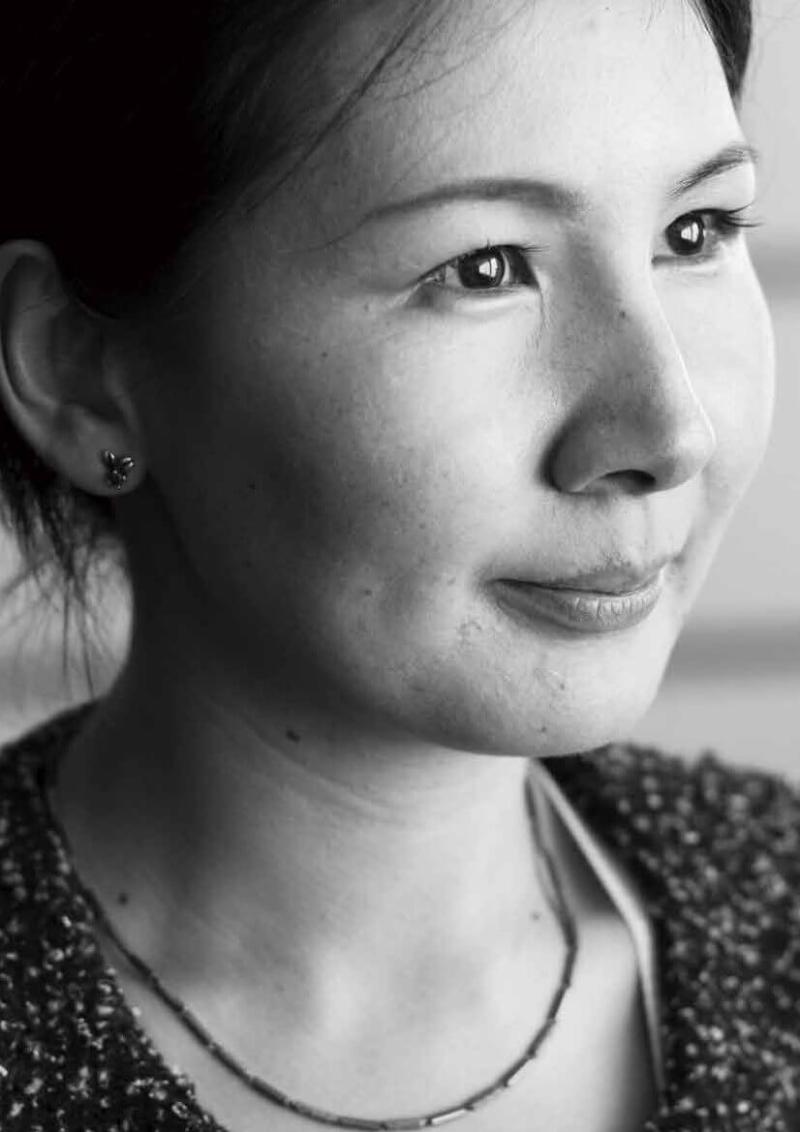Issue:

Tokyo based correspondent Purev Batochir’s complaint doesn’t sound so different from that of many of her colleagues from around the world: The 30 year old rarely sells enough stories to newspapers back home to make a decent living. Her problem is compounded, however, by being from one of the planet’s poorest countries.
“The average Mongolian has no interest in Japanese politics because they’ve got too many of their own problems to deal with,” she says of her 2.5 million compatriots during a recent interview at the FCCJ.
Even Mongolia’s appetite for news about its string of successful sumo exports is pretty limited, she laments.
Like many of the former centrally planned economies, Mongolia is struggling to emerge from the dead hand of Stalinism and transform into a marketled, multiparty democracy. The result has been breakneck economic expansion the economy grew at a record 17 percent plus last year and toxic corruption, fueled by the rise of a new breed of mining oligarchs.
Purev’s publication is hardly immune. The daily Mongoliin Unen (Mongolian Truth) is the country’s oldest newspaper and the official organ of the Mongolian People’s Party, which changed its name from the Mongolian People’s Revolutionary Party after the fall of communism in 1989. The Ulan Bator based paper was set up by exiled Mongolian revolutionaries in 1920.
The boss of her newspaper is a former advisor to the country’s president, she points out. “He’s not a proper journalist. To tell you the truth, the paper is like a party mouthpiece,” she admits, using the Japanese word kikanshi Purev speaks little English but fluent Japanese. “If I got the chance, I’d like to write for other newspapers too.”
Mongolia’s corruption briefly became front page news last year when the country’s ex president, Nyamdorj Enkhbayar, was thrown in prison. Among his crimes was illegally privatizing a newspaper and misusing donated broadcasting equipment at his own television station, proving the old adage that ambitious politicians cannot afford to ignore the media.
Purev came to Tokyo seven years ago, after studying Japanese at a Mongolian university. She says she never shared the anti Japanese sentiments of Mongolia’s neighbor China. “I always liked the culture and language. I admired the preciseness and neatness of Japanese people and wanted to go and see for myself.
“Of course, there are people in Mongolia who dislike the Japanese we fought them in the war,” she continues. “But there have been huge changes in the last 70 years. Japan has stood back on its feet and become strong. I’ve not met a bad Japanese person in the last seven years. The fact is, we admire and trust Japan.”
‘OF COURSE THERE ARE PEOPLE IN MONGOLIA WHO DISLIKE THE JAPANESE WE FOUGHT THEM IN THE WAR. BUT THERE HAVE BEEN HUGE CHANGES IN THE LAST 70 YEARS.’

Purev enrolled as a student at Takushoku University. But with no scholarship or money from home, she had to work hard, first at a convenience store, then at a Tokyo based events company that brings Mongolian artists to Japan. She still makes most of her living translating for the firm while freelancing for Unen.
By 2011, she was a good Japanese speaker and a decent writer but without a steady outlet for her work. The March 11 triple disaster gave her a chance to show what she could do. She says she was probably the only Mongolian correspondent in the entire country.
“There was so much erroneous information in Mongolia,” she recalls. “People thought Japan was actually collapsing, that Tokyo was destroyed. I was angry at the stupid things being said, so I thought, ‘This is an opportunity for me.’ I didn’t even want payment. I just wanted to do a job I knew I’d like, and give an accurate picture of what was going on.”
She began filing several stories a day for Unen, ignoring the pleas from relatives and compatriots to flee Tokyo. “It was fine here,” she says. “I wasn’t worried at all.” Inevitably, that work has tailed off since. Last year, she got a chance to meet the newspaper’s president when he came to the FCCJ but there was no full time contract.
These days she continues to file feature stories every month even as her quest for a proper correspondent’s job continues. She has written stories on the exploits of Mongolian companies in Japan, the problems of Sony and other electronic giants and, of course, sumo. Yokozuna Hakuho is a friend. Luckily, she says, he seems to have emerged clean from the match fixing scandals that tarnished the sport two years ago a scandal that upset Mongolians.
Her problem is finding time to research stories while working, and paying her FCCJ monthly membership. “I can manage ¥4,000 a month but what am I going to do when I get to 34?” she laughs, pointing out that her membership fee will more than double.
Someday, she hopes her country develops a genuinely free press that tackles corruption on its own doorstep and pays a livable wage to its correspondents.“We’re not as bad as China but the powerful are becoming more powerful. Journalists should not be afraid to tell the unvarnished truth that’s the first principle of our job. We need them to monitor and dig out what’s happening, whatever country we live in.”
David McNeill writes for The Independent, The Economist, The Chronicle of Higher Education and other publications. He is the co-author of Strong in the Rain: Surviving Japan’s Earthquake, Tsunami and Fukushima Nuclear Disaster.

